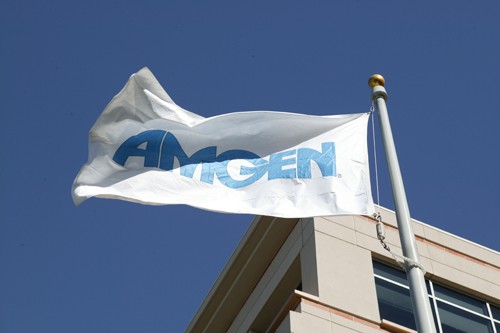
Amgen’s struggling cholesterol-reducing antibody Repatha reduced the size of atherosclerotic plaques in almost two thirds of patients in a trial, boding well for later outcomes data.
Despite blockbuster sales projections, PCSK9 inhibitor Repatha (evolocumab) and rival drug Praluent (alirocumab) from Regeneron/Sanofi have seen their initial uptake pegged back by health insurers reluctant to stump up the $14,000 per year (before discounts) price tag for the drugs. Third-quarter sales were just $31m and $38m, respectively.
To break the deadlock, the PCSK9 inhibitors need solid data showing they offer a clear clinical advantage over low-cost statins, and the GLAGOV study gives the company encouragement that aspiration remains achievable.
At the American Heart Association (AHA) annual meeting this week, lead study author Stephen Nichols of the University of Adelaide in Australia reported that adding a monthly Repatha shot to daily statin use led to an improved blood cholesterol reduction.
The drug also reduced the size of atheromatous plaques clogging up the arteries of patients, leading to a reduction in 64% of patients, most of whom were already on moderate- to high-dose statins. In a matched placebo group around 47% of patients showed plaque regression. The results have also been published in the Journal of the American Medical Association.
The finding does not provide conclusive proof that adding Repatha to statin therapy will improve clinical outcomes such as heart attack – that data will have to wait until the FOURIER trial finishes in the first quarter of 2017. However, it does reveal for the first time that PCSK9 inhibitors can have an effect beyond cholesterol reduction, and that pushing cholesterol levels below commonly accepted thresholds leads to continued plaque reduction.
In the case of Praluent, the results of the ODYSSEY OUTCOMES trial are not expected until December 2017.
“The compelling data from GLAGOV remove any scientific doubt about the ability of Repatha to lower LDL-C and the impact it has on the critical underlying disease process,” said Amgen’s head of R&D Sean Harper.
“We remain concerned that many patients are experiencing barriers to accessing Repatha, despite their physician’s treatment recommendations,” he added.
The difficulties experienced by the first two PCSK9 inhibitors in the market played a role in Pfizer deciding to drop its own candidate bococizumab, which was set to become the third entrant.




